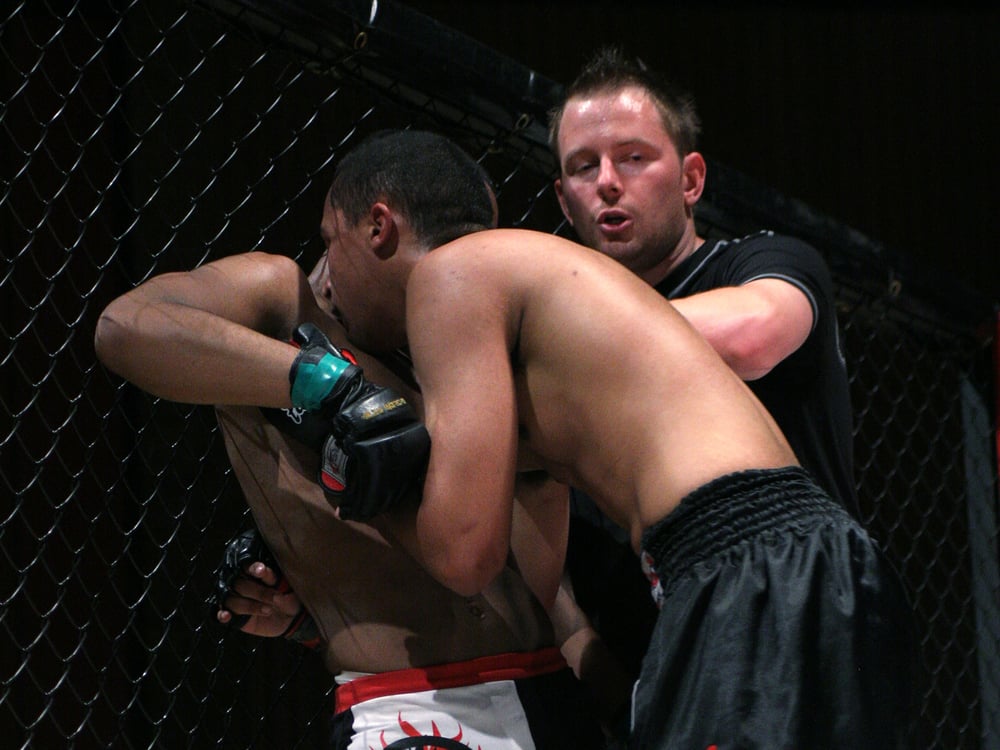
Issue 072
February 2011
UFC referee Marc Goddard brings fight fans the ref’s side of the story.
This month: Are fence-holding and shorts-grabbing instinctive or cheating? And how decisive can they be?
In MMA there are two particularly common fouls: grabbing an opponent’s shorts, and holding the fence (collective ‘sigh’!). Admittedly some fighters might be only warned once for these fouls their whole career, but others receive multiple warnings during any given fight. They’re both so common that they’re correctly viewed as minor infringements, unless of course committed repeatedly, after warnings – especially if they become a deciding factor in the result.
What’s unique is that fence-holding in particular can sometimes be excused as an instinctive reaction. For instance, if a fighters feels that he’s falling over he may reflexively reach out for the cage to stop going to the ground. If it happens during a bout, the ref should verbally warn the fighter of the foul that he’s committing, and allow the action to flow freely without intervention if possible. Fence-grabbing’s also quite common when two fighters are in a clinch up against the cage. The fighter coming forward might grab the cage behind his opponent’s back to stop him reversing position, or simply to exert more control. This is often committed from the side the ref can’t see.
Grabbing the fence with these intentions, and deliberately attempting to use the fence as an aid to get back to one’s feet are much less of an ‘instinctive’ motion and can dramatically alter the course of a contest. This is where a referee will use his judgment and experience. He or she will evaluate the seriousness of the foul and act accordingly by stopping the action, replacing a fighter to a previous or grounded position, and/or deducting points.
It’s easily argued that grabbing and holding an opponent’s shorts isn’t instinctive; it’s actually deliberate. This tactic is often employed to stop knees in a standing clinch, or to add leverage and grip when grounded. It could be decisive: for instance, stopping a possible fight-ending takedown leading to a submission. Or it may not directly affect a contest’s outcome at all. But it’s a listed foul and should be treated as one.
The referee’s discretion and experience is paramount when assessing these two all-too-common rule infringements. Point deductions are certainly not to be taken lightly. They can determine the outcome of a fight and rightly so. Intentional and persistent fouls require the attention, decision and decisive action of a referee. But, with so many other variables in a fight for a referee to consider, mentally note and possibly have to recall at a seconds notice, it takes a clear, experienced and decisive mind.
...










